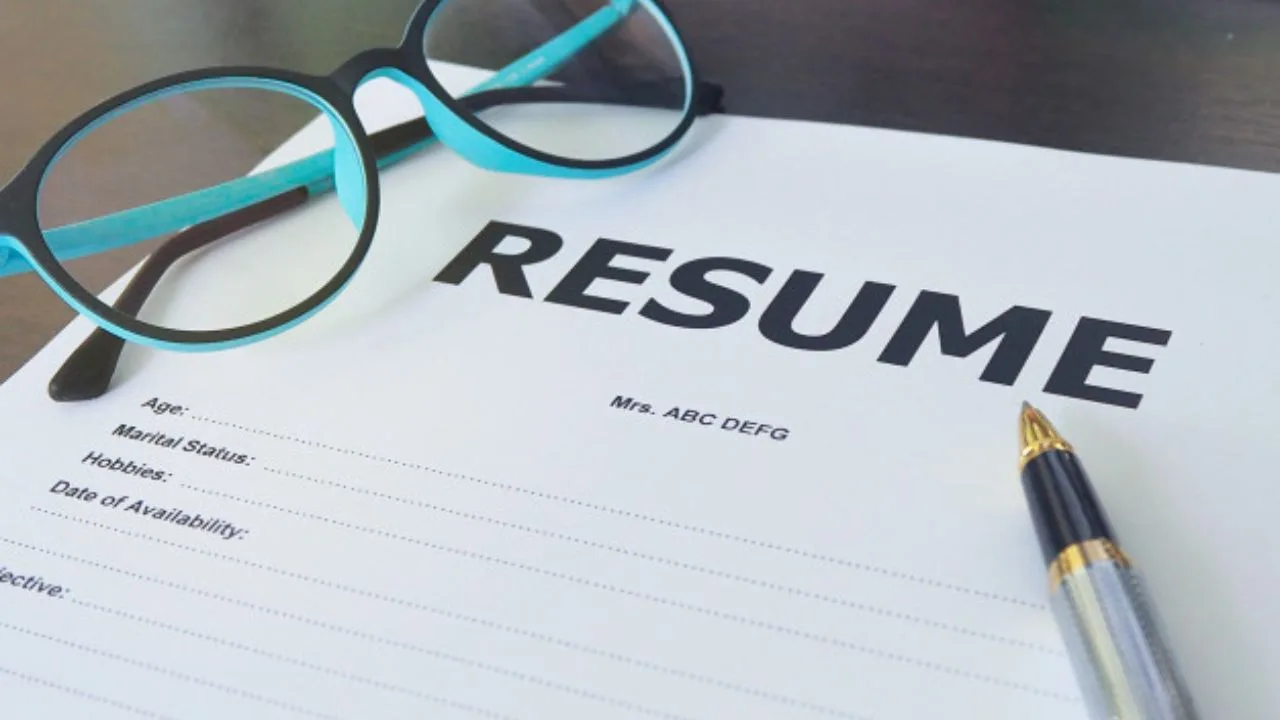Resume For Job Interview: A strong resume communicates your qualifications and sets you up for career success. Here’s a full breakdown of what a resume is, why resumes are important for job seekers, and what makes each type of resume unique.
Gather Your Professional Information
Preparation is key to writing a resume that stands out. We’ll cover what essential information you should gather before writing your resume to save time and put your best foot forward.
To ensure a well-prepared resume, carefully examine your relevant qualifications and match them with the requirements of your desired job.

Resume Format
Now that you’ve prepared your information, it’s time to choose a resume format that effectively showcases your qualifications.
- There are three standard formats.
- Chronological Resume Format-It is most commonly used
- Functional Resume Format-Focuses on Showcasing Your Skills and Training
- Combination Resume-Combines the Functional and Chronological Resume
- Format Each uses the same resume sections but organizes them differently, so choose one that works best for your work experience level and your professional goals.
Contact Information
One of the most important aspects of writing a resume is ensuring that your contact information is displayed so that hiring managers can contact you for an interview. what to include in your resume contact information: Your full name.
- A reliable phone number.
- Your professional email address.
- Your city, state, and ZIP code.
- A link to your professional social media account.
Resume Summary
- It is important to note that in modern resume writing, a professional summary or profile section is preferred over a traditional resume objective statement.
- If you choose to include an objective statement, ensure that you focus on the company’s needs rather than those of your own.
Resume Work History
- Include your educational background, starting with the most recent degree. For each entry, provide Degree Earned: For example, Bachelor of Arts in Marketing.
- Institution Name: The school where you earned your degree.
- Graduation Date: The month and year you graduated.
If you have relevant certifications or courses, include them in this section as well.
Resume Skills
When writing a resume, you must include at least one bulleted list of skills, no matter what resume format you use. Include a mix of hard skills and soft skills to show recruiters that you are well-rounded.

- Technical Skills: Such as proficiency in software programs or tools.
- Soft Skills: Like communication, teamwork, or problem-solving.
Add relevant certifications, licenses, and training
When making a resume, create a separate resume section for certifications, licenses, or professional training you have completed.
Here’s how to make a good resume certifications section for any additional training.
- The title of the certification, course, or license.
- Name of the certifying or agency body.
- The date you obtained each certificate.
The expiry date of your certificate (if applicable). If you have not yet finished the course, write “In Progress” with the expected date of completion.
Save Your Final Resume
Finally, make sure to save your resume carefully. Look for any spelling or grammatical errors and ensure that the formatting is consistent throughout. It’s also a good idea to have someone else review your resume to catch any mistakes you might have missed.
